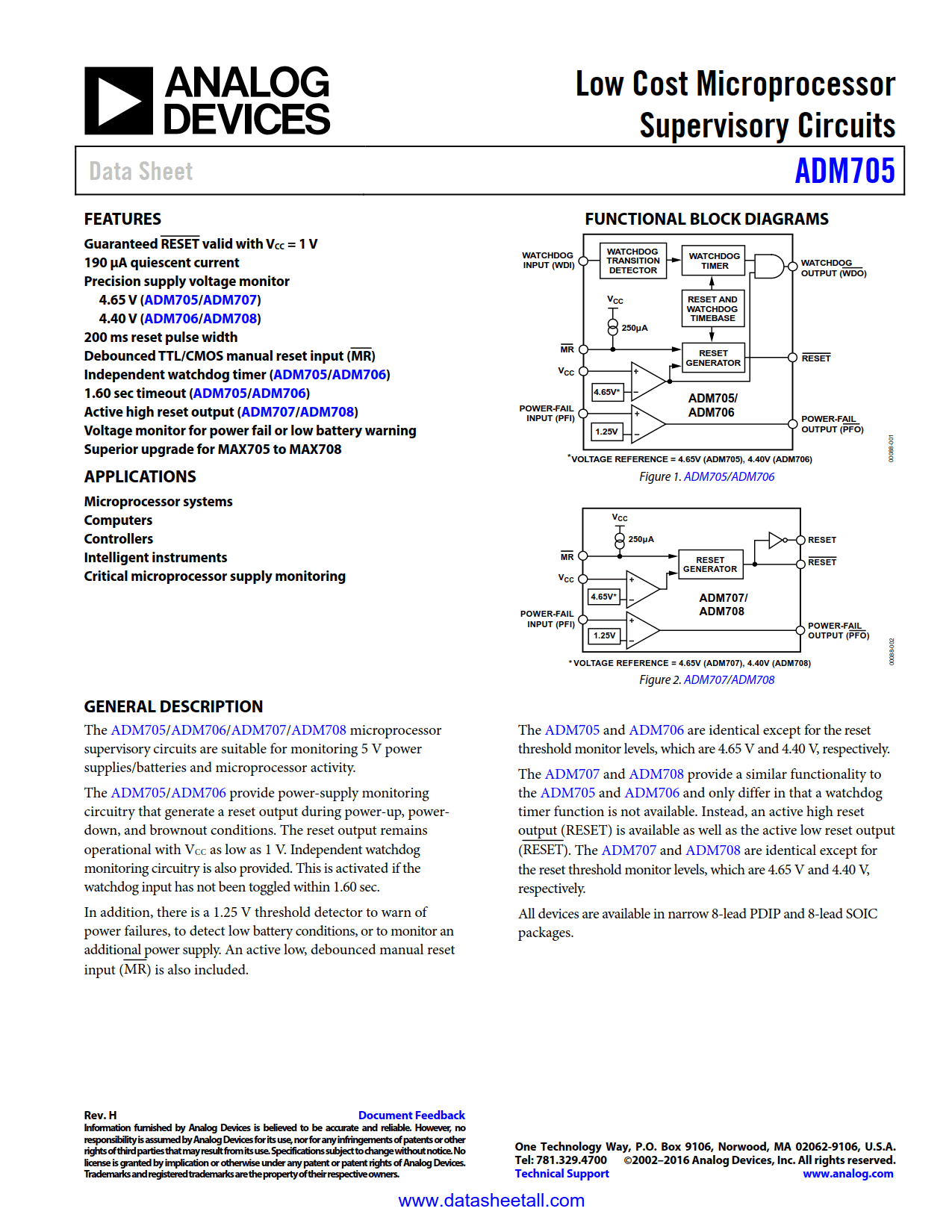
ADM705 Datasheet
Low Cost Microprocessor Supervisory Circuit

Low Cost Microprocessor Supervisory Circuit
| Part No. | In Stock | Price | Packaging | SPQ | Marking | MSL | Pins | Temp Range | Package Description |
The ADM705 microprocessor supervisory circuits are suitable for monitoring 5 V power supplies/batteries and microprocessor activity.
The ADM705 provide power-supply monitoring circuitry that generate a reset output during power-up, powerdown, and brownout conditions. The reset output remains operational with VCC as low as 1 V. Independent watchdog monitoring circuitry is also provided. This is activated if the watchdog input has not been toggled within 1.60 sec.
In addition, there is a 1.25 V threshold detector to warn of power failures, to detect low battery conditions, or to monitor an additional power supply. An active low, debounced manual reset input (MR) is also included.
The ADM705 are identical except for the reset threshold monitor levels, which are 4.65 V and 4.40 V, respectively.
The ADM705 and only differ in that a watchdog timer function is not available. Instead, an active high reset output (RESET) is available as well as the active low reset output (RESET).
The ADM705 are available in narrow 8-lead PDIP and 8-lead SOIC packages.